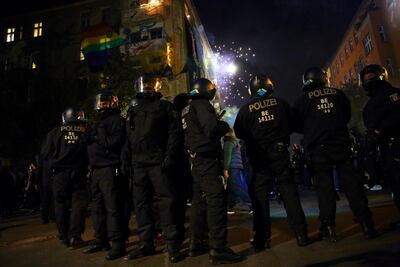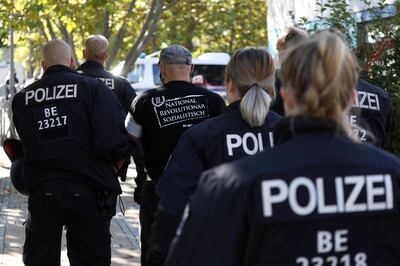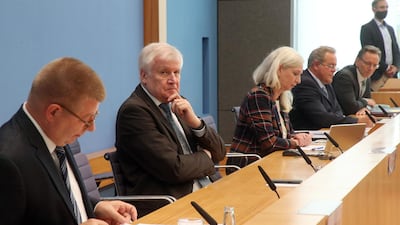A report into extremism in the German security forces has uncovered more than 350 suspected far-right cases between 2017 and April 2020.
On Tuesday, authorities unveiled the long-awaited report on right-wing extremism in Germany’s state and federal police in the wake of a string of scandals over far-right networks within the forces.
About 300,000 members of the security forces were asked to fill out anonymous questionnaires for the report, in the hope of breaking what unions and experts have called a culture of silence.
These included security professionals from across the police and other security services, such as the BfV domestic intelligence agency.
As the report, the first of its kind in 30 years, was launched at a press conference, interior minister Horst Seehofer said it had shown there was no culture of racism in the German security forces.
"The result of the report is clear: we have a small number of cases," the minister said.

"This means that the very overwhelming majority of security employees, meaning more than 99 per cent, abide by the constitution. This means also that we have no structural problem with right-wing extremism among security forces at the federal or state level."
Despite the report appearing to vindicate the government, which has refuted claims it had allowed a culture of right-wing extremism in the police, Mr Seehofer conceded one case was still too much.
"Each case is a disgrace ... because it tarnishes the image of the whole security services," he said. Seehofer is a member of Chancellor Angela Merkel's ruling Christian Democrats Party.
Thomas Haldenwang, head of the BfV domestic intelligence agency, echoed this sentiment. "Each of these cases is a case too much," he said.
Germany’s security services have been dogged by suspicions of far-right infiltration in recent years.

The report detailed how 319 suspected members were found within state-level police forces, with 58 suspected members at federal level, according to the Frankfurter Allgemeine newspaper.
In September, 29 officers were suspended from the police force in the state of North Rhine-Westphalia over their participation in private chat groups in which images of Nazi leader Adolf Hitler and a refugee in a gas chamber were shared.
The interior minister of the western state, Herbert Reul, said the 126 images shared across five WhatsApp chat groups on private phones between 2013 and 2015 were “the worst” and “obnoxious”.
The German government has already had to take action against extremism within the armed forces. In July, an elite unit of Germany’s Special Commando Forces was formally disbanded after some of its members were found to hold extremist views.
Police seized weapons, explosives and ammunition during a raid on the private property of a commando sergeant major in the eastern state of Saxony.
Investigators uncovered 2 kilograms of plastic explosives and an AK-47, plus an SS songbook and other Nazi memorabilia.
Military counter-intelligence in Germany has investigated about 600 troops feared to be involved in far-right extremism.
Mr Seehofer said he would like to see a wider investigation into extreme-right attitudes across the whole of the civil service.
“Racism is a universal topic that must not be restricted to one professional group. It also applies to housing and job allocation. We will commission a study on racism in society," he said.

